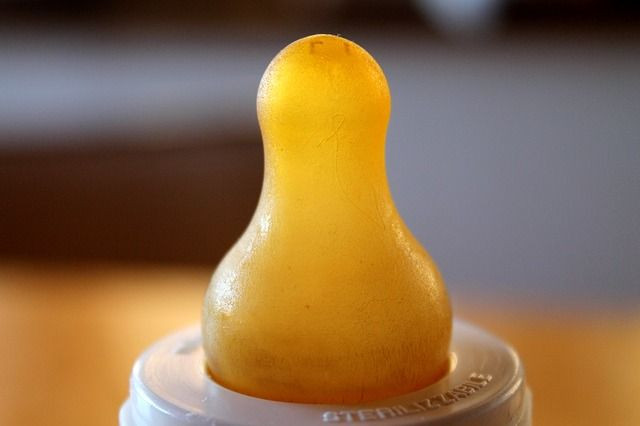Hypoallergenic Formula Made From Hydrolyzed Milk May Not Prevent Allergies After All

A new study conducted by researchers from Imperial College London has found that milk formulas specially designed to give infants specific protection from asthma, allergies, and Type 1 diabetes may not live up to their expectations, and breastfeeding may be the better option, even for children at a higher risk of developing allergies due to a family history of the condition.
According to the Asthma and Allergy Foundation of America, the food proteins in mother’s breast milk may stimulate the development of food allergies. This may be especially true for babies that have a family history of allergies. Instead of feeding young children breastmilk or traditional baby formulas, some mothers choose to give their children hydrolyzed formulas in which cow milk proteins have been broken down so they are less detectable in the stomach, and therefore less likely to cause an allergic reaction.
In order to investigate the claim that hydrolyzed formulas help reduce the risk of allergies and other autoimmune diseases in babies, the ICL team looked at data from 37 studies conducted between 1946 and 2015. All together, the review consisted of over 19,000 participants. Results of the analysis revealed that, despite having FDA backing, there really is no clear and consistent evidence to suggest that these formulas do anything to reduce allergy risk.
“Our findings conflict with current international guidelines, in which hydrolyzed formula is widely recommended for young formula-fed infants with a family history of allergic disease," the study authors wrote, Health Day reported.
Allergies are an immune response to a normally harmless outside stimuli, such as certain foods in the case of food allergies. Common symptoms of food allergies include rashes, hives, diarrhea, nausea, and other digestive issues. Many allergies are genetic; having two parents with a specific allergy significantly increases your chances of developing the same allergy. However, food allergies are on the rise, and no one is really quite sure why. For example, according to Allergy UK, around 50 percent of children in the UK are diagnosed with an allergic condition.
According to the study, infant feeding guidelines throughout North America, Australia, and Europe suggest that hydrolyzed cow's milk formula is better than standard infant formula in preventing autoimmune disorders during the first months of life. However, these results suggest it may be time to revise these guidelines.
Still, despite this increased risk for allergies in a child with a family history, the AAFA suggests that mother’s breast milk remains the optimal form of nutrition for infants. In addition to being highly nutritious, a recent review on 28 breastfeeding studies found that breastfeeding may also reduce the risk of many serious health conditions, including sudden infant death. In high-income countries, breastfeeding reduced the risk of sudden infant deaths by more than a third. In low-and-middle- income countries, diarrhea episodes and a third of respiratory infections were halved in breastfed babies.
"Breastfeeding is an exquisite personalized medicine," said lead author Dr. Cesar Victora, lead author of the study, according to Stat. "There is a biological dialogue between mother and child. The breast milk may change according to the child’s need."
Source: Boyle RJ. Hydrolysed formula and risk of allergic or autoimmune disease: systematic review and meta-analysis. BMJ . 2016



























